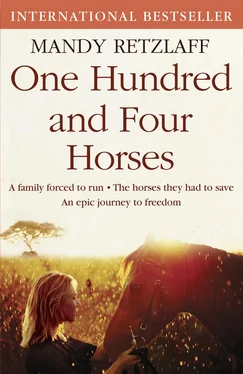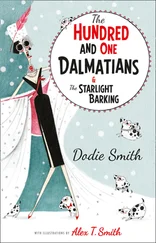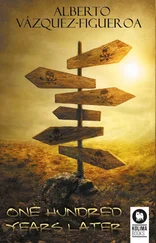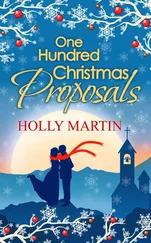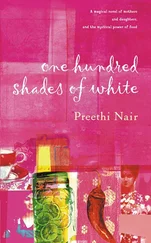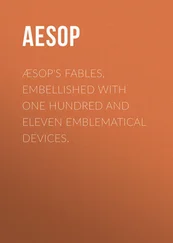The figure waiting in the lobby did not look like the tall champion I had met at the party. I stopped dead on the staircase and simply stared. It was Patrick Retzlaff, all right, but surely not the Patrick Retzlaff who had asked me out. His suit was at least three sizes too small and seemed to constrict him in all the wrong places. His feet, meanwhile, were showing through a pair of oversize, scuffed cowboy boots that had clearly seen better days. I looked at him in horror and my instinct was to slowly inch away, but Pat had already caught my eye. Perhaps I could feign illness. A migraine. Food poisoning. Anything to let him down gently. I did not know if I could be seen with a man who was so badly dressed.
My mind was wheeling, grappling to come up with some excuse, when suddenly there was a commotion in the bar on the opposite side of the hotel reception area. Pat and I turned to see what was going on. At the bar, a drunken and abusive man was bearing down upon a student much smaller and slighter than himself. There was a sickening crunch as the man’s fist connected with the student’s face.
Before I knew what was happening, Patrick—constricted by his ugly, ill-fitting suit—was barreling into the bar. In seconds, he had put himself between the student and the overbearing man. Lifting a big hand, strangled by the cuff of his suit, he pushed the drunk off. The drunk reeled back against the bar, and, beneath him, the student scrabbled out of the way.
When he had made sure the student was all right, Pat turned and made his way back out of the bar. His hand was dripping with blood, his palm a scarlet swirl where fragments of broken glass had raked across it. He didn’t seem to notice until my eyes lingered on it and, when he did, he simply wiped himself clean up and down his suit.
Pat was wearing the biggest, broadest grin on his face.
“So,” he said, “are we still going to that party?”
All thoughts of migraines and food poisoning had evaporated. Already, I knew that this was the man for me.
It was a wonderful birthday party, but more wonderful for letting me get to know Pat. We spent most of the night simply talking. Pat had come to South Africa on a scholarship, but his heart belonged in the old British colony of Rhodesia, and it was to Rhodesia that he planned to return, to take up a position on an agricultural research station. At the time, Rhodesia was more than a decade deep into a civil war. Following the British prime minister Harold Macmillan’s famous “Wind of Change” speech in 1960, Britain had begun a process of granting independence to her African colonies—but, by 1965, it had become clear that Britain would not grant Rhodesia her independence with anything other than a universal franchise. A policy like that would mean that every man and woman had exactly the same right to vote, irrespective of color or level of education, and this was deemed unacceptable by the Rhodesian government, who wished to preserve its present order, with fifty seats in parliament reserved for whites and fourteen for blacks. That system would have maintained a largely white parliament, in direct contrast to the makeup of the country, in which only 10 percent of the population was white.
In 1965, Rhodesia’s prime minister Ian Smith made a Unilateral Declaration of Independence; Rhodesia became independent, yet was not acknowledged as such by Britain. The UDI triggered the onset of the bitter bush war that had been raging ever since. I could not imagine what it was like to grow up in a country at war with itself, but for Pat it was all he had known. The Rhodesian army was locked in conflict with black insurgents led by a man named Robert Mugabe, among others, and a guerrilla war was being fought across the country. This was not war as I recognized it, but a succession of sudden conflicts, terror attacks, and violent reprisals, and many men on both sides of the divide were losing their lives. Rhodesia was in a state of stalemate, and as soon as he graduated from university, Pat would have to take up a gun and join the fray.
He told me all about that, but most of all, he told me about his horses.
I had never met a man as in love with horses and animals as Pat. He came from a long line of horse lovers. His maternal great-grandfather was the Baron Moritz Hermann August von Münchausen, an officer in the Prussian army who married an American heiress and built an enormous castle in Bokstadt, Germany. It was there that he founded a stable for breeding Thoroughbreds and became famous across Europe for producing champions. The most famous horse the baron had owned was named Hannibal, which he had bought for a great deal of money in those days, and whose skeleton, Pat told me, could still be seen in a Frankfurt museum.
Pat had inherited his family’s ancestral love and skill with horses through his father, Godfrey, who had grown up in Tanzania and moved with his family to Rhodesia in 1965, just before UDI. In Rhodesia, Godfrey became the manager at a cattle ranch in the southwest of the country, and he would spend every day in the saddle, cantering around the eighty thousand acres of bush. His favorite horse—and the one that, even into his old age, he would always vividly remember—was an Arabian stallion named Paul, after both his grandfather and his eldest son. Paul the stallion liked nothing more than to drink beer and would let nobody except Godfrey ride him. Over the years, many bets were placed on this, with cocksure young horsemen eager to prove their worth by climbing into the saddle—but Godfrey always won. With a little help from his friends, Paul, it seemed, could make his own beer money.
With family like that, it was only too clear that Pat would devote his life to horses—and, even on that very first night, I knew that it was so. And there was one horse in particular who had changed Pat’s life, one horse who had been with him since he was a boy, one horse to whom he would always keep returning.
Her name, he told me, was Frisky.
In 1970, Rhodesia was five years into her civil war—but life, with all its loves, passions, and deaths, still went on. Pat was thirteen years old and on his way home from the school where he boarded. It was a year before his mother would tragically pass away from cancer, and he thought of nothing but running wild on the family farm. He had chickens and cattle of his very own, and would spend the holidays on horseback riding the farm horses, including his father’s chestnut gelding, Bridle.
Pat reached the farm and was racing up to the farmhouse, dropping his school bags along the way, when he saw his mother and father standing out front. At first, he wondered if something was wrong. Perhaps something had happened to the cattle, which were his pet project, or the few chickens he still kept from an earlier obsession. Yet, when he reached his mother and father, they were smiling.
They did not welcome him home. That could wait. They simply told him to follow and led him to the back of the farmhouse.
Here, Bridle was in his paddock with two of the family’s other horses. Pat ventured to greet his father’s old horse, but, before he got there, he saw a new mare, a stranger come to the farm. She was small, fifteen hands high, a skewbald mare with beautiful markings and a willful look in her eyes. Pat stopped short, looking between his mother and father.
“Her name’s Frisky,” his mother told him. “Well, go on!”
Pat rushed over, stopping a few yards away from the horse to approach her more gently. She had already been tacked up. He put a hand on her muzzle and let her nibble at his hands. Her ears twitched as she became accustomed to this strange boy. Pat draped his arms around her, threw a look at his parents.
“She isn’t saddled up for nothing,” his father intoned.
His left foot went into Frisky’s stirrup. Then, swinging his body over, his right found the stirrup on the opposite side. He lifted the reins in one hand, in the way he always rode, and started talking to her. It is a special moment, he knew, when a boy climbs into a horse’s saddle for the very first time, even more special when it is his very first horse. Frisky walked slowly forward, to the edge of the paddock, where Pat looked down on his mother and father.
Читать дальше
